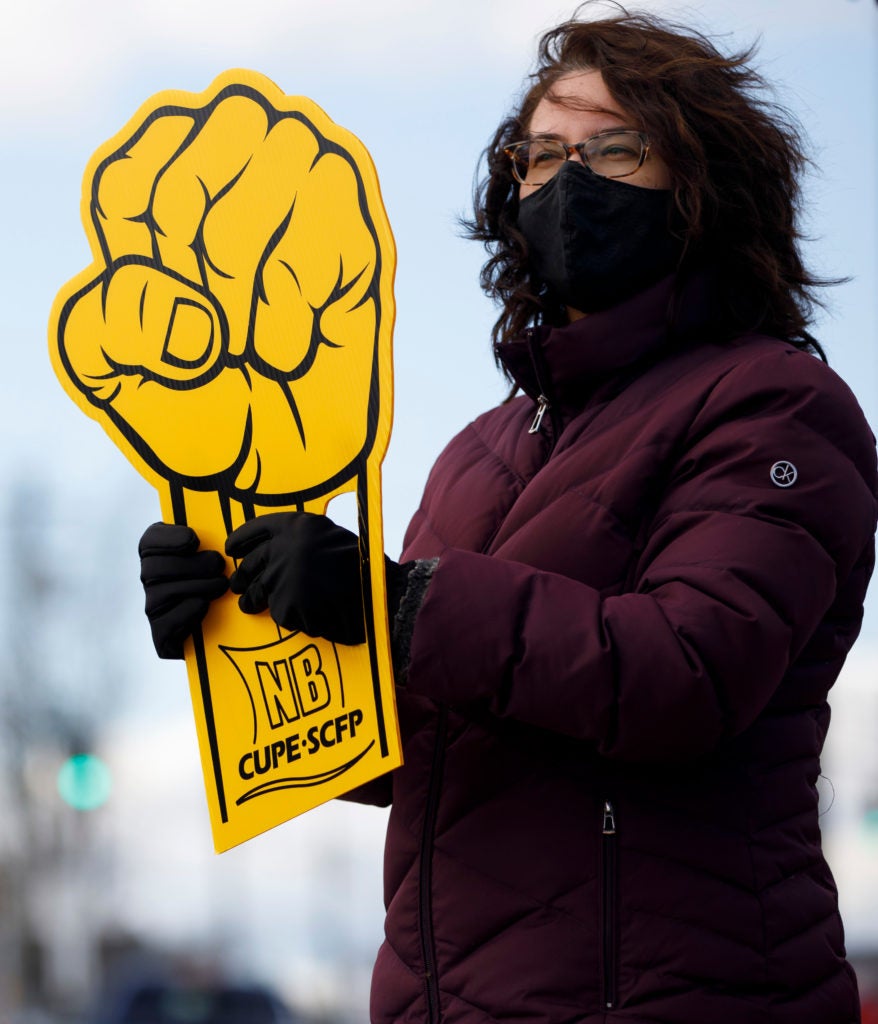
If you’re here, you probably have questions about joining a union like CUPE, and how we may be able to help you and your workplace.
Have you been treated unfairly at work recently? Has your boss denied payment for your extra hours? Are you still waiting for your last paycheck? Are you facing harassment, discrimination, or disrespect? If so, then you definitely need a union. When you’re on your own, it’s tough to take a stand. You often find yourself settling for the meager offerings your boss reluctantly makes. But consider this – if it happens to you, how many others are going through the same? By uniting with other workers, you can fight back and win better pay, respect, and fairness.
Currently, our unionization efforts in New Brunswick are focused on (but not limited to) the following sectors:
- Childcare workers
- Long-term care and Shannex workers
- Social services and community care workers
- Cannabis NB staff
- University workers
- Municipal employees
- Security personnel
What will CUPE do for me?
Each member has the assistance of a CUPE national representative. Representatives provide assistance with collective bargaining, grievances, health and safety, arbitration, and other work-related issues.
Our staff also includes specialists who provide members with expertise in labour law, research, education, communications, job evaluation, discrimination and equality, health and safety, and technology.
In CUPE the members are in charge. In each CUPE local, the members democratically decide their priorities for bargaining, when to settle a new contract, and how to manage funds.
CUPE’s strength comes from individual members working toward common goals. Together we maintain and improve wages and benefits, improve health and safety conditions, and make your workplace better. Sectors CUPE members work in many sectors of the economy:
CUPE has over 715,000 members across Canada in the public and private sectors.
In New Brunswick sectors include, but are not limited to:
- childcare
- municipalities
- health care, hospitals
- long-term care
- K-12 education
- security and emergency
- universities
- social services